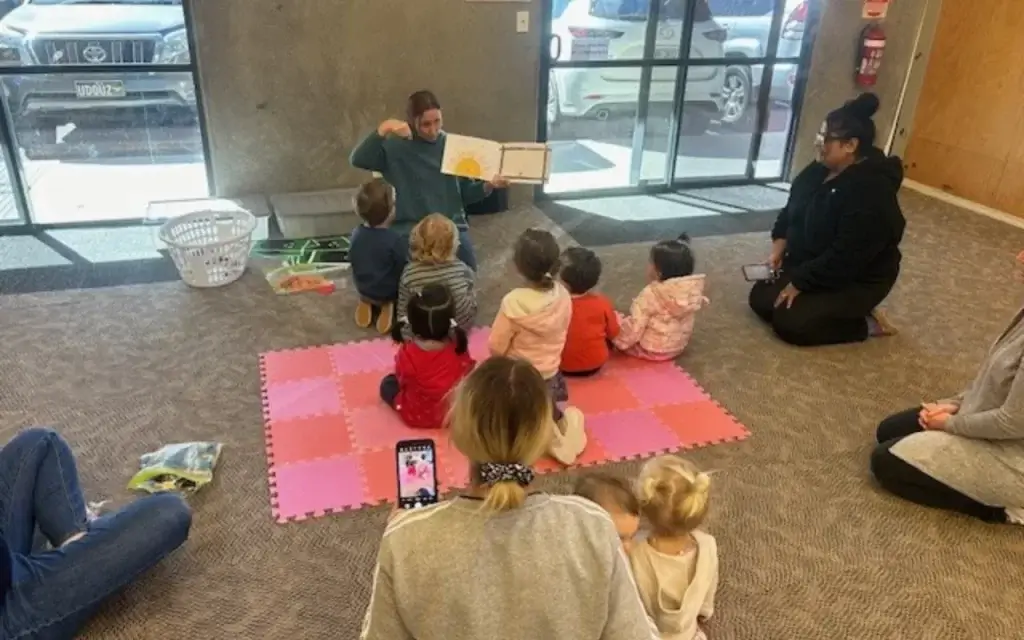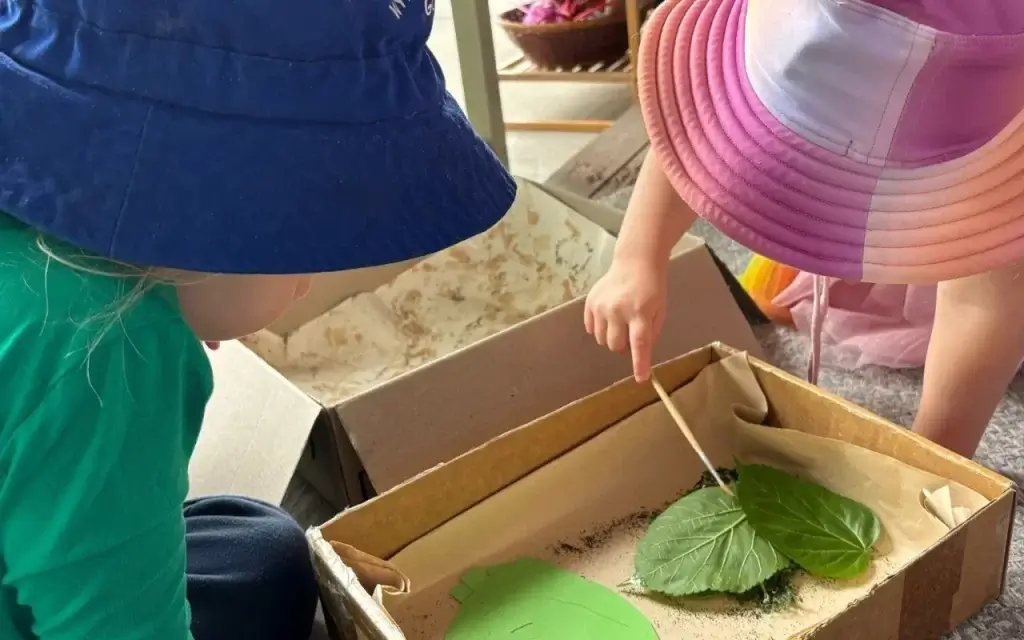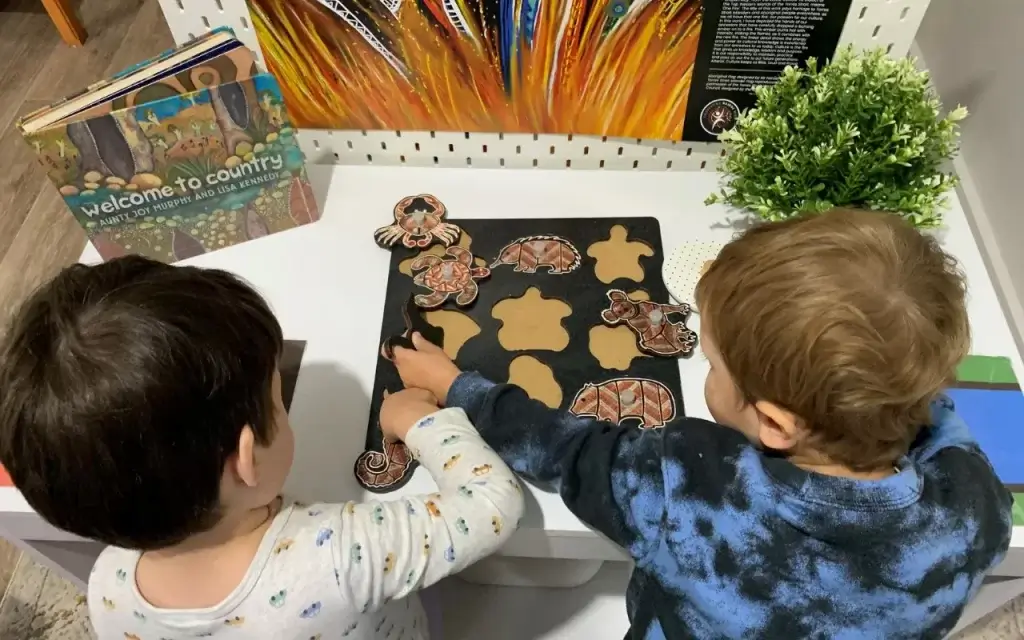It is a big decision to decide where to enrol your child for their first steps into the educational world. Knowing the differences between family daycare educators and traditional childcare can help parents pick the best choice for their kids when they need child care. Family day care, often run by educators in a home environment, offers a unique and personalised experience compared to traditional childcare, which generally operates within a larger, more institutional setting. Here, we explore both options’ distinctions, benefits, and challenges.
What is the purpose of a Family Day Care Educator?

The core purpose of family daycare is to provide children with a caring, homelike environment that supports their development. Family daycare educators offer a smaller group setting, allowing individualised attention and a nurturing atmosphere that mimics home comfort. This setup mainly benefits younger children who thrive in less crowded and more personalised environments.
In family day care, the educator-to-child ratio is generally low, meaning each child can receive the specific support they need. This setting also allows educators to focus on holistic development, helping children build social, cognitive, and motor skills through structured yet flexible activities.
The environment is typically relaxed, with plenty of opportunities for outdoor play, creative expression, and learning through play—all tailored to each child’s developmental stage. Because of these unique attributes, family daycare provides a more intimate approach to childcare than traditional centres.
LEARN HOW WE PROVIDE HOLISTIC FAMILY DAYCARE SUPPORT
Understanding Traditional Childcare vs. Family Day Care Educator Approaches
In contrast, traditional childcare centres offer a more formalised approach to early childhood education. These facilities typically have a more extensive staff and enrol more children, creating a structured environment. Traditional childcare centres often follow a set curriculum to guide children through milestones that prepare them for school. While these centres provide more resources regarding toys, educational materials, and activities, they may offer a different one-on-one interaction than family daycare.
The structured approach in traditional childcare settings can help children adapt to routine and discipline. Traditional centres are also often regulated and standardised, which provides parents with confidence that specific health and safety requirements are being met.
The larger peer groups can also aid in social development, teaching children to engage with others from diverse backgrounds. However, the larger group size may be overwhelming for some children, especially if they’re new to group environments.
The Role of Family Day Care Educator Relationships in Child Development
One of the most valuable aspects of family day care is the strong bond that develops between children, their families, and the family day care educator. Unlike in traditional childcare, where multiple carers may be involved in a child’s day, family day care typically involves a single educator responsible for the children daily. This consistency helps children feel secure and builds a trusting relationship between the educator and the family.
The value of these relationships cannot be overstated. Family daycare educators often take on a role that extends beyond the responsibilities of a typical caregiver.
They may guide child development, work closely with parents on behavioural and developmental goals, and create an environment where each child feels individually cared for. The deep connection formed with family daycare educators can impact children’s emotional well-being, instilling a sense of security and belonging that fosters healthy development.
For parents considering transitioning their child into family day care, 7 Tips for Switching to a Brisbane Childcare Family Day Care can provide helpful guidance on ensuring a smooth change, mainly if the child is used to a different environment.
KNOW WHAT PARENTS SHOULD KNOW ABOUT THE EARLY CHILDHOOD EDUCATION
Benefits of Traditional Childcare Structure and Socialization
Traditional childcare centres excel in providing children with exposure to diverse social environments. With larger groups of children and a rotating schedule of carers, traditional childcare centres encourage children to develop resilience, independence, and adaptability. For many children, the social experiences offered in conventional settings help them learn to navigate group dynamics and build essential social skills.
The structured routine of traditional childcare is also beneficial, particularly as children get older. This routine helps children become accustomed to schedules similar to what they will encounter in school. Additionally, the resources and curriculum at traditional centres often introduce children to foundational literacy and numeracy skills, giving them a head start for formal education.
Traditional childcare also provides a network of trained educators with specialised skills in early childhood education, which can be especially beneficial for children who may need support in particular areas, such as speech or physical development. However, while these centres provide resources and structure, they may need more individual attention than family day care offers.
LEARN HOW WE NURTURE YOUNG MINDS AT WYNNUM FAMILY DAY CARE
How to Cope with Your Child Starting Daycare
Starting daycare, whether a traditional childcare centre or a home daycare, can be a significant change for the kids and the parents. Here are some valuable tips that will make this change easier:
- Prepare Gradually: Before starting daycare, familiarise your child with the new environment. If possible, arrange a few short visits to the facility or meet the educator casually. This helps your child feel more comfortable with their surroundings and the people they’ll interact with daily.
- Establish a Routine: Consistency is comforting for children, especially in times of change. Establish a morning and evening routine, including daycare preparation and packing their favourite toy or family photo. This can help create a sense of predictability.
- Communicate Openly with the Educator: Build a strong line of communication with your child’s daycare provider. Family daycare educators, in particular, are known for fostering open communication with parents. Sharing information about your child’s habits, preferences, or fears can help the educator create a supportive environment.
- Celebrate Small Wins: Starting daycare is a significant milestone, so take the time to celebrate small achievements. Praise your child for showing bravery or for making new friends. This makes them feel better about themselves and have a better attitude about daycare.
- Stay Consistent: It’s natural for children to experience separation anxiety when they start daycare. Consistency in drop-off routines and reassurance can help ease their fears. Over time, your child will adapt to the new routine, especially when they feel supported by their family and educator.
For parents who use weekend care, Child Care on the Weekends: 10 Tips for Fun and Educational Ideas for Saturdays and Sundays offers creative ideas for keeping children engaged and learning during weekends.
Why Parents Choose Family Day Care Educators
For many parents, family daycare offers an appealing alternative to traditional childcare. The flexibility, personalised attention, and homelike environment make it an ideal choice for children who may need more nurturing or thrive in smaller group settings. Family daycare often provides individualised support and strengthens relationships between children, families, and educators.
At Wynnum Family Daycare, we focus on creating a supportive, inclusive environment that feels like a home away from home. Our educators are passionate about fostering a safe, nurturing atmosphere where children can grow at their own pace. We know it can be hard to find the proper child care, and we’re dedicated to giving your child a good experience while giving you peace of mind.
Deciding Between Family Day Care and Traditional Childcare
Choosing between family daycare and traditional childcare ultimately depends on what best suits your child’s personality and needs. Family daycare provides a personalised approach with a homelike feel, which can benefit children who need a quieter, more intimate setting.
In contrast, traditional childcare centres offer a more structured routine and a variety of social opportunities that may suit children ready for a more interactive group environment.
Both options have their strengths, and there needs to be more than one-size-fits-all solution. Family daycare is an excellent choice for parents looking for an environment that closely resembles home, where children can form lasting bonds with a dedicated educator. Conversely, parents who value a structured curriculum and social opportunities might find traditional childcare a better fit.
Whatever you decide, the most important thing is that the environment fits your family’s ideals and helps your child grow. Knowing the differences between family daycare and traditional childcare can empower parents to make informed decisions, setting their child on a positive path for future growth and learning.
CONTACT US FOR WYNNUM FAMILY DAY CARE AND EDUCATION SERVICE DETAILS



